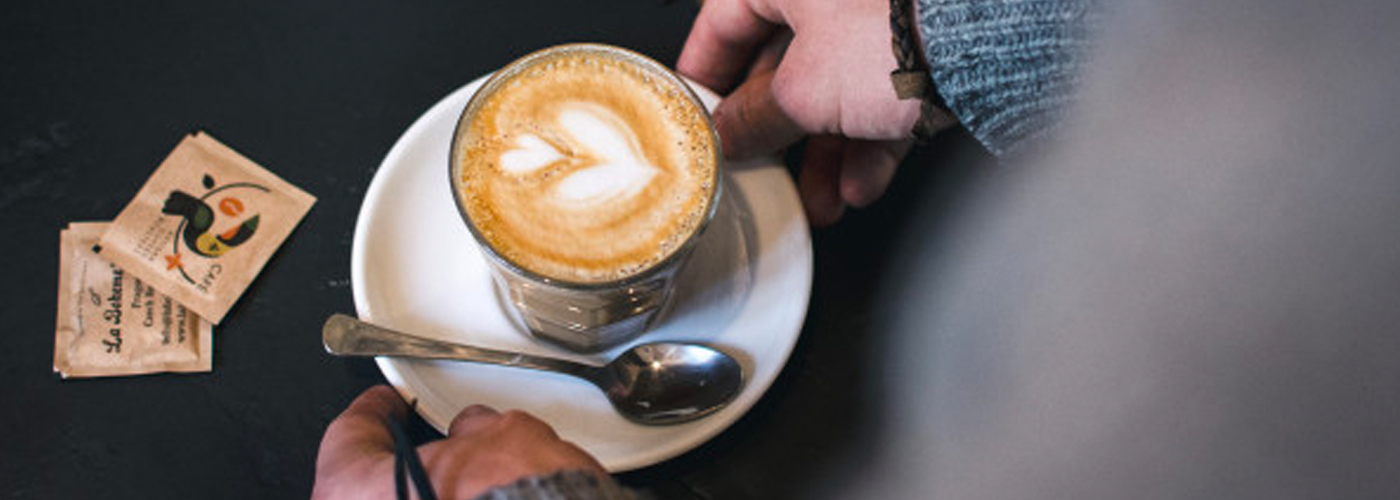Does matcha have caffeine?

Matcha is a powerful antioxidant and has been renowned for helping our bodies in numerous ways. Whether you’re drinking it, applying it, or consuming it, science has shown that matcha has several rewarding benefits.
This powerful superfood is everywhere; it’s even in Starbucks! Yes, STARBUCKS. All over the world, this leading giant coffee chain set off a colossal trend concocting a tasty drink known as a matcha latte.
As soon as this drink hit the coffee industry, a few questions sprang to regular coffee drinkers’ minds.
The first was, “Does matcha have caffeine?”
While the second was, “Are matcha lattes better than coffee?”
Well, the truth is, we can’t answer the second one as matcha lattes aren’t coffee-based, they’re tea-based, with sweetened milk and many other flavors. Irrespective of the ingredients, though, the taste of matcha lattes is entirely subjective.
We can, however, answer question number one.
Does matcha contain caffeine?
Now you know that the secret ingredient to matcha lattes isn’t coffee, it’s tea, don’t be fooled. Mostly, all forms of tea have a level of caffeine in them. Therefore when you drink it, your senses will be heightened; you could become more alert or restless.
Look, we’re not trying to tell you to take drugs; we’re just advising you about caffeine’s side effects.
Anyways, back to matcha. When you ingest matcha, you’re consuming the whole tea leaf. The important thing to remember is that it may now seem like you’re not consuming a lot of caffeine because the leaves are crushed, when having matcha, but you are. It’s rumored that the levels of caffeine in matcha is the equivalent to a whole bag of black tea!
How much caffeine is in matcha?
We can’t say precisely how much the standard caffeine levels in matcha are. This is because there are various matcha types out there from premium grade, culinary grade, and ceremonial grade.
However, it’s estimated that in standard green tea, there is around 31.8 mg and ceremonial grade matcha, it is roughly 68mg.
Don’t worry; matcha is like coffee; you’ve just got to regulate your intake, and your health won’t be at risk. The great thing about caffeine in matcha is that it’s much slower releasing than the instant caffeine kick coffee provides.
This is due to an amino acid known as L-theanine, which causes caffeine’s slow release to create a calming sensation in your body. The caffeine in matcha binds to a natural antioxidant in your body known as catechins, which allows it to be broken down slowly.
As a result, upon consumption of matcha, you gain steady energy throughout 6-8 hours. In comparison to coffee, this also limits your insulin or adrenaline levels from rapidly spiking. Therefore you never get to experience that crash like what coffee provides.
Matcha is healthier than coffee
Look, coffee lovers don’t shoot the messenger here. We’re not saying that matcha is BETTER than coffee, we’re simply stating it’s healthier.
When consuming matcha, it has a range of antioxidants in it and, as mentioned above, a slow-releasing form of caffeine. Matcha also has more balanced PH levels than coffee, which can better your digestion.
Matcha is also an excellent remedy for helping your mental and emotional well-being; it wonders when you’re on a down day.
NOT MATCHA LATTES
Just cause we stated the many health benefits of matcha over coffee, it does not imply that matcha is better than coffee. If you’re going to go to Starbucks to get a matcha latte for its health purposes, think again.
Matcha is in the drink, but very little, the truth is that additional sugars, syrups, and sweeteners override and cancel out the matcha content.
Therefore, we suggest you drink matcha in its purest form but do it in a regulated way, so you don’t have too much caffeine in one day.
